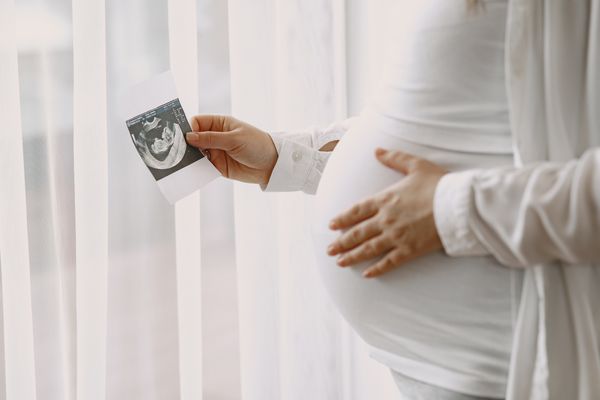The title of "A Couple," Frederick Wiseman's new movie, is both intriguing and a little misleading. Intriguing because it doesn't make reference to a place, establishment or social issue, as you might expect by now from this 92-year-old master of the institution-centric documentary. And misleading because in the course of this rare dramatic work — Wiseman's third after "Seraphita's Diary" (1982) and "The Last Letter" (2002), though stricter fiction/nonfiction semanticists might beg to differ — we meet only one-half of the couple in question.
She is the writer Sophia Tolstoy, famed for her long, productive and famously tempestuous marriage to Leo Tolstoy, and played here by the French actor Nathalie Boutefeu. The movie, which Boutefeu and Wiseman adapted from Sophia's personal diaries and letters, is a roughly hourlong monologue, punctuated by rapturous bursts of floral imagery. Some of those flowers decorate the shawl that Sophia wears as she wanders island landscapes of an intense, often otherworldly beauty, all the while giving voice to an intense chronicle of marital devotion and discontent.
"Your power crushed my life," she declares to her unseen husband, an idea that she has a hundred different ways of elaborating. Leo, she rails, was an erratic and egomaniacal presence, prone to violent mood swings and interested in his wife primarily for her utility. Even those who know little about Sophia likely know the famous fact of her having copied out the entire manuscript of "War and Peace" an ungodly number of times, by hand and by candlelight. "A Couple" illuminates Sophia's myriad other contributions to her husband's career and their bustling household, chiefly the raising of their eight surviving children (five others died young). Never once, Sophia declares, did Leo lift a fatherly finger: "You are not interested in us. Not in me or in the children, not in our inner life, not in our sorrows."
The inner lives that did interest him could be found, of course, in his art, a calling that absorbed and obsessed him to the exclusion of all else. ("'You think that my life is one thing and my writing is another. But my writing is me,'" Sophia quotes him as saying.) But just as Leo, for all his mistresses and manuscripts, his fits and distractions, could prove fitfully capable of passion and affection, so Sophia's monologue can suddenly veer from excoriating to tender. A dazzling suite of emotions plays out within the confines of Boutefeu's subdued, sensitive, gradually mesmerizing performance. At times she stares with laserlike focus into the camera, as if she had located the object of her scorn seated just behind the lens. Mostly she stares pensively into the middle distance, lost in the phantasms of memory.
Or maybe she's just ravished by the scenery. "A Couple" was shot (in widescreen, by John Davey) on Belle-Île, an island off the coast of Brittany, which is host to, among other things, some of the most photogenic flora in recent cinematic memory. Sophia's monologue plays out over roughly the length of an afternoon's walk, and her thoughts are often interrupted by close-ups of flowers, their bright-hued petals rustling gently in the breeze. They're somehow like little else you've seen in a Wiseman movie and, on another level, the movie's most recognizably Wisemanesque touches, simply because of the way they function as visual breathers, with each shot held for only a few quick moments.
At times I wished they'd lingered still longer. The pillow-shot effect that Wiseman achieves in these mini-montages (as always, he served as his own editor) may reflect the stop-and-go cadences of Boutefeu's dialogue, but it also makes it tougher to ease into a contemplative groove. Even so, a restiveness gradually fills the movie as Sophia strolls through impossibly green gardens or stares out at the waves breaking against the nearby shore. Is she in self-imposed exile, or is this lonely island a kind of dream space? The bookending shots of Sophia writing in her diary by candlelight provide a clue. So does a line in which she speaks of Leo's propensity for long, lonely walks — the kind of leisurely pleasure that she had precious little time for.
There's a temptation to read "A Couple" through a personal prism, to imagine a sneaky thread of Wisemanesque reality weaving its way through this reverie-like tribute to an undersung heroine. If the movie is an indictment of the sexist power dynamics that have long governed heterosexual relationships, is it also Wiseman's personal reckoning with the all-consuming nature of his own art, or with his own marriage of 66 years? (His wife, the pioneering legal scholar Zipporah Batshaw Wiseman, died in 2021; her name has long graced the director's production and distribution company, Zipporah Films.)
Wiseman has resisted these interpretations in interviews, and this sharp, sobering and invigorating movie is, in the end, no more or less rich for the implications. There are undeniably personal elements to this movie, including its relocation of a Russian story to Gallic soil. (France, specifically Paris, has long been a second home to the Boston-born Wiseman.) But in the end, I suspect, he is no more likely to impose himself on one of his fictions than he would on one of his documentaries, which "A Couple" may resemble more than it appears. Wiseman has spent a career probing the complex inner workings and painfully human errors of America's establishments, but in marriage itself, he may have found the most fraught, mysterious and unreformable institution of all.
———
‘A COUPLE’
(In French with English subtitles)
No MPAA rating
Running time: 1:04
How to watch: Now in theaters
———







